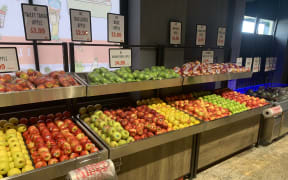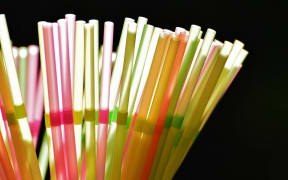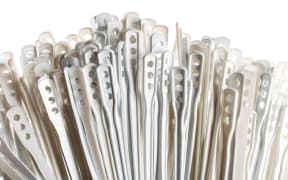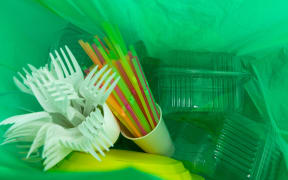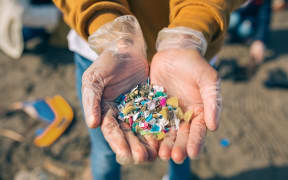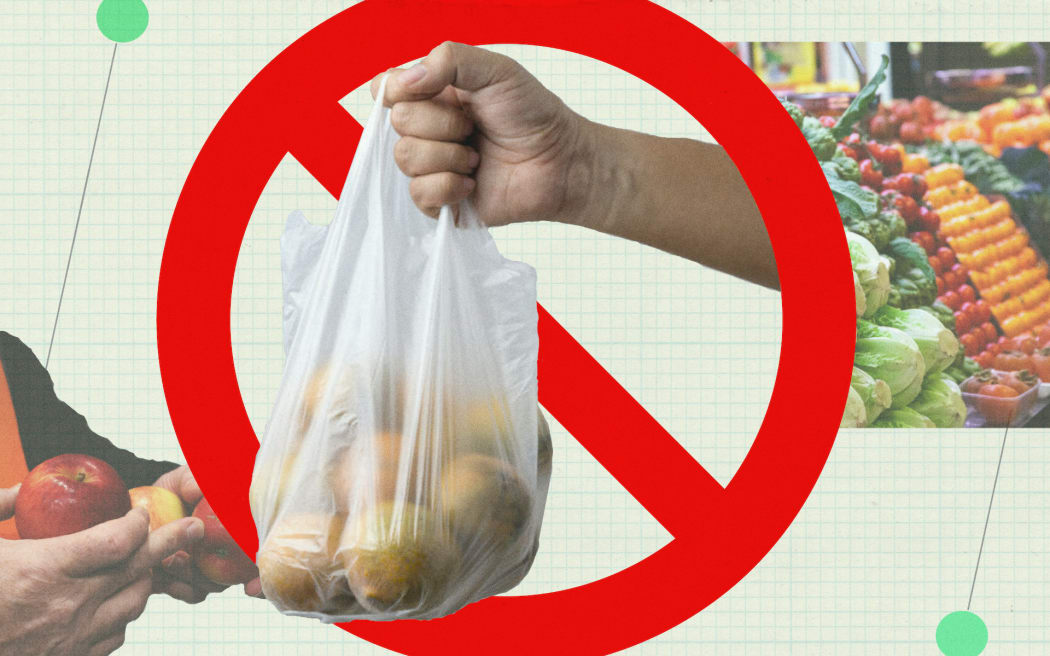
A ban on single-use produce plastic bags begins Saturday. Photo: Photo Illustration / Nik Dirga
From Saturday, your fruit and vegetable shopping will look a lot different, as the government's next phase in the ban on single-use plastic bags begins. Here's what you need to know:
So, what is being banned?
Here are the changes as of 1 July:
- The manufacture, sale or distribution of single-use plastic produce bags, plates, bowls, and cutlery will be banned.
- Single-use plastic straws will be restricted. Some businesses or organisations will still be able to provide them to disabled people and those with health needs.
- A transition to compostable plastic produce labels by 2025 will begin.
Full details of the plan, including a few exceptions, can be found on the Ministry for the Environment website.
Ministry for the Environment chief executive James Palmer has said the ban will dramatically reduce plastic waste.
"The ban on single-use plastic produce bags for example will remove 150 million plastic produce bags from circulation each year.
"That's 17,000 plastic bags, every hour."
The government has also set up a list of resources for businesses and individuals available in multiple languages regarding the changes.
What am I supposed to put my tomatoes in now?
We have already seen single-use plastic grocery bags banned for several years, and with produce bags now included the best tip is a simple one - bring your own bag.
If you have not been able to source your own produce bags just yet, paper bags will be offered in some grocery and vegetable shops, while grocery chains such as Countdown and New World will also offer reusable produce bags for purchase in store.
The Fruit World chain's Auckland Manager Steve Higgs earlier told RNZ the company is switching to paper bags.
"We've certainly had plenty of time to migrate across to that paper bag option, which is good, and hopefully the next step is when customers get a little bit more focused on bringing their own bags in."
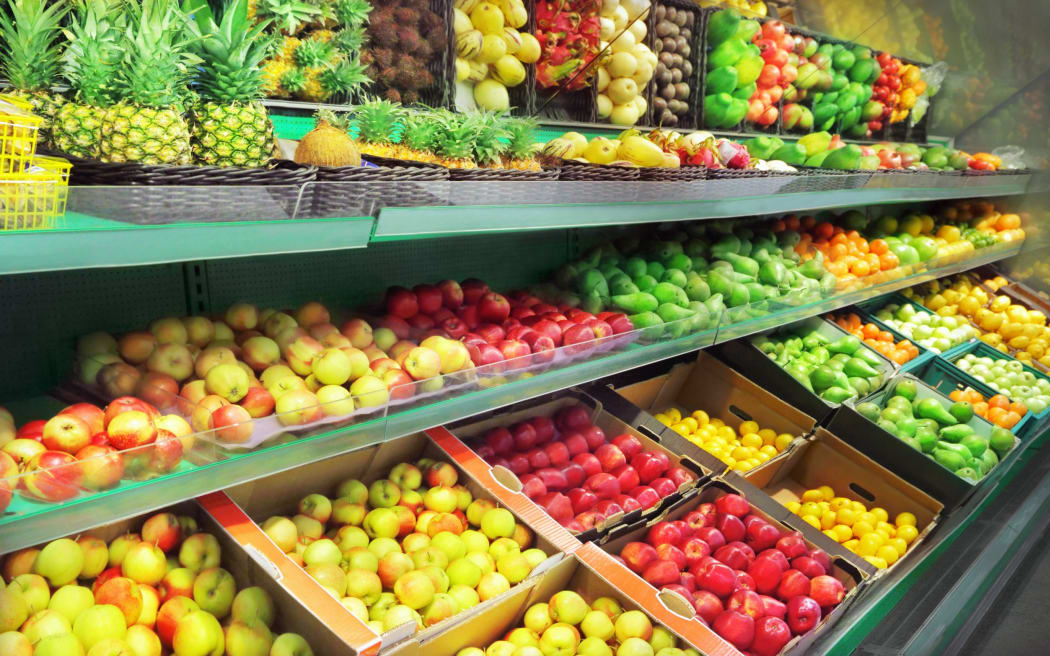
Produce plastic bags will no longer be allowed at supermarkets. Photo: 123rf.com
Why are they doing this again?
This is the latest step in Aotearoa's long-term strategy to eliminate plastic waste and part two of the Waste Minimisation (Plastics and Related Products) Regulations 2022.
In announcing the three-step ban in 2021, Environment Minister David Parker said he estimated it would remove more than 2 billion single-use plastic items from our landfills or environment each year.
"These types of plastics often end up as waste in landfills and cause pollution in our soils, waterways and the ocean," Parker said then.
"Reducing plastic waste will improve our environment and ensure we live up to our clean, green reputation."
One of the key principles in policies like this is the idea of Ōhanga āmiomio, or a circular economy where we "ensure we can unmake everything we make".
Director Waste Stream Policy at the Ministry for the Environment Shaun Lewis has said "The plastic products the government is phasing out are often used only once before becoming waste or litter".
Didn't we already ban some single-use plastics?
Yes, we did. In October 2022, polystyrene takeaway containers, plastic cotton buds and drink-stirrers were among single-use plastics banned from sale or manufacture in New Zealand.
Single-use plastic bags for your regular grocery shopping were banned from use way back in July 2019.
Up next, by mid-2025 "all other PVC and polystyrene food and drink packaging" which the government describes as "hard to recycle plastics" will be banned.
Here is a handy infographic of the full government plan - we are now in the middle phase:
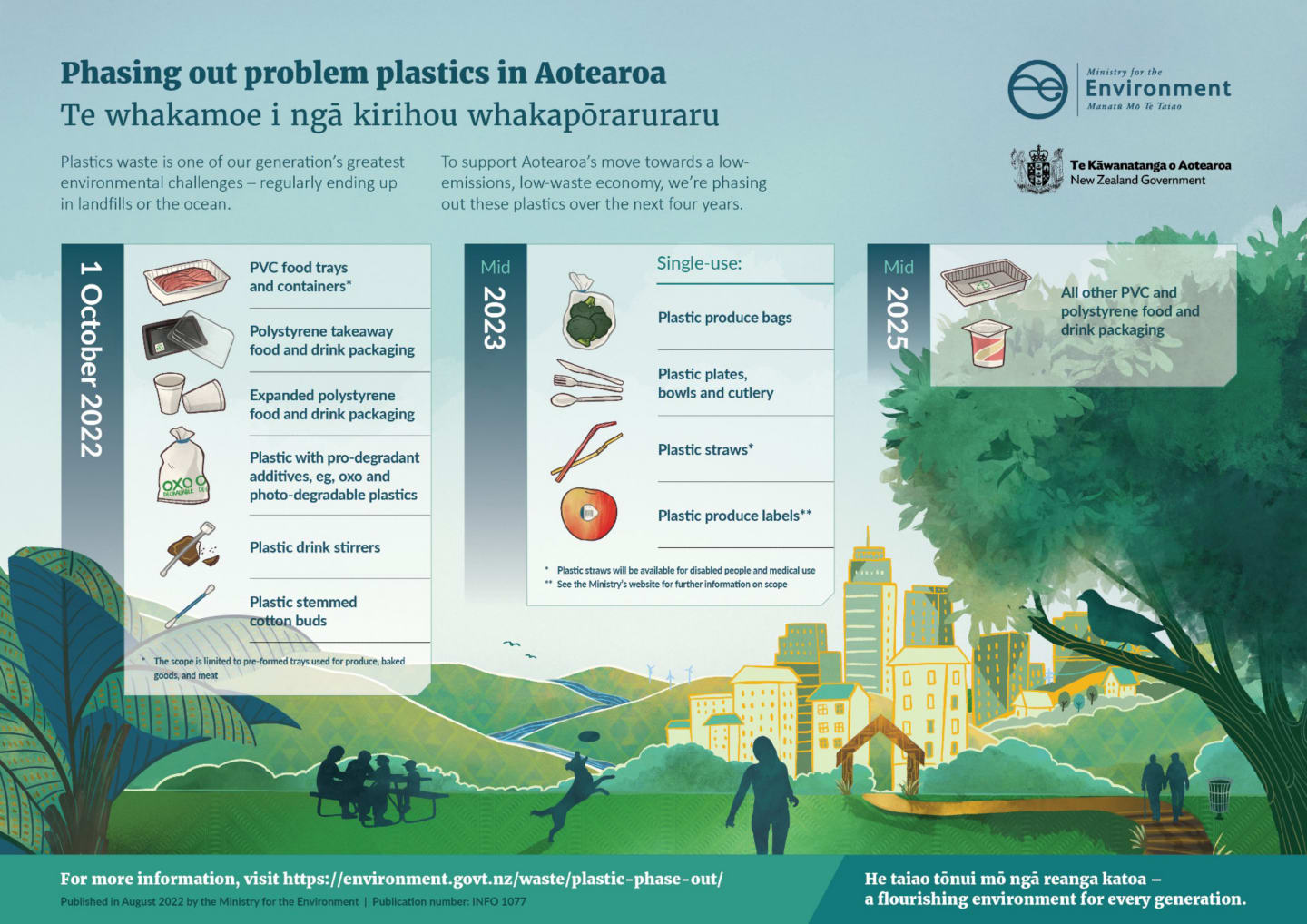
Photo: Supplied / Ministry for the Environment
"We won't miss these plastic items when they are gone either," Green MP Eugenie Sage said in 2022.
"With a bit of support and advice, switching to reusable products to replace these unnecessary plastics is easy."
Does this mean we'll save the planet?
Environment Ministry waste stream policy team acting manager Daisy Croft told The Detail podcast this week that unfortunately, there was no magic easy cure for the environmental damage cheap and disposable plastics have been doing.
"There's no quick fix to the plastics problem because it does require changing individuals' behaviours and habits.
"But there is a lot going on and I would say, for example, New Zealand's the first country in the world to phase-out produce bags, and we're also one of the first to be taking action on produce labels and we can be proud of that."
As part of the work, the government also announced a $5 million fund for projects that will reduce plastic waste.
What happens if a business just ignores these new rules?
All businesses are legally compelled to comply, but the Ministry for the Environment said an educational approach will generally be taken to those who do not.
There is also an online form the public can use to report ban offenders.
If education fails, there is a big stick - the ministry notes that parties that contravene the Waste Minimisation Act 2008 may face prosecution and, if convicted, fines of up to $100,000 per offence.
